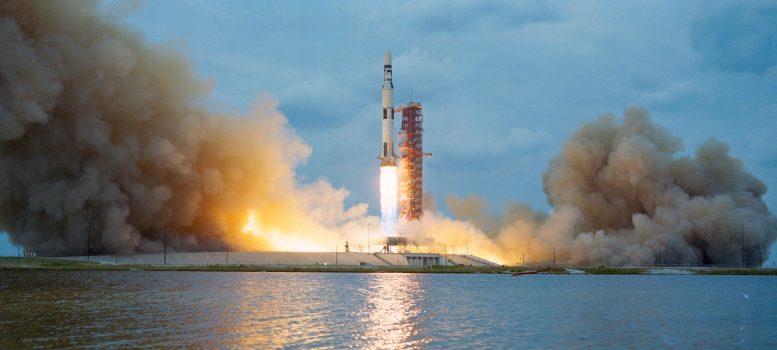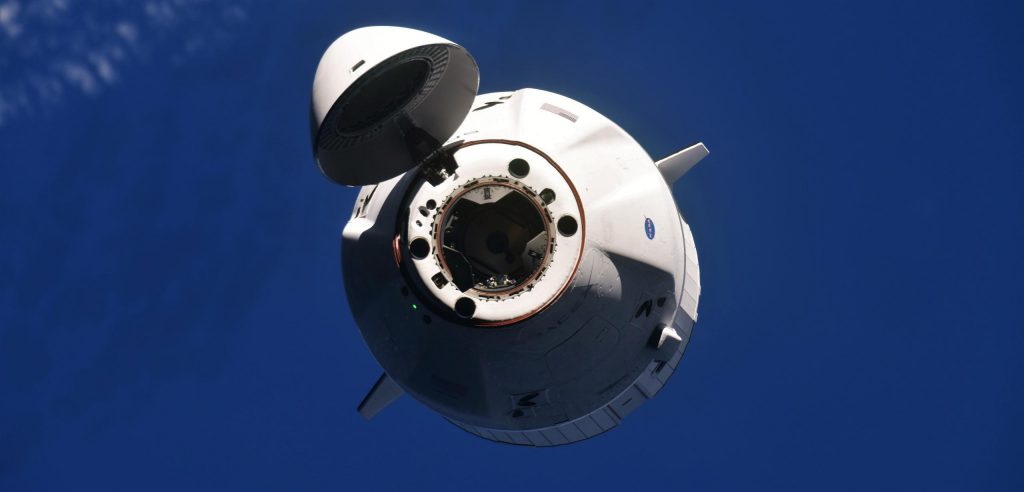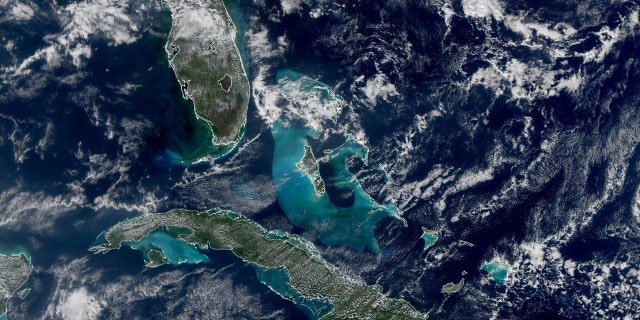
Ο μη επανδρωμένος σταθμός Skylab εκτοξεύτηκε σε τροχιά από έναν ενισχυτή Saturn V. Ο πύραυλος Saturn V μετέφερε ανθρώπους στη Σελήνη και παραμένει ο πιο ισχυρός πύραυλος που έχει φτάσει σε τροχιά μέχρι σήμερα. πίστωση: NASA
Ακουστικά μοντέλα βασισμένα στη φυσική και ιστορικά δεδομένα συνδυάζονται για να διορθώσουν κοινές παρανοήσεις σχετικά με τον πιο ισχυρό πύραυλο που εκτοξεύτηκε ποτέ.
ο[{” attribute=””>Saturn V, which carried mankind to the moon, remains the most powerful rocket to successfully launch to orbit. Its incredible power captures the imagination — but sometimes, it might capture a bit too much imagination. Abundant internet claims about the acoustic energy of the rocket suggest that it melted concrete and lit grass on fire over a mile away.
Such ideas have been proven false. Researchers from Brigham Young University (BYU) used a physics-based model to estimate the acoustic levels of the Saturn V rocket. They obtained a value of 203 decibels, which matches the very limited data recorded in the 1960s. The study appears in The Journal of the Acoustical Society of America, published on behalf of the Acoustical Society of America by AIP Publishing.
To put that number into perspective, commercial jet engines range from around 120 to 160 decibels.
“Decibels are logarithmic, so every 10 decibels is an order of magnitude increase,” said author Kent L. Gee, of BYU. “One hundred and seventy decibels would be equivalent to 10 aircraft engines. Two hundred would be 10,000 engines!”

In 1967, the Apollo 4 mission launched from NASA’s Kennedy Space Center. The mission marked the first launch of the Saturn V rocket. Credit: NASA
While the Saturn V was indeed extremely loud, that kind of power is nowhere near sufficient to melt concrete or start grass fires. If reports about these phenomena are true, they likely stem from radiative heating via the plume or debris.
Some of the misunderstanding originates from confusing sound power with sound pressure. The former is like the wattage from a light bulb. The latter is like the brightness from the same bulb: It depends on how far away you’re standing. Mistakes in calculations, changes to the decibel reference system, and the propagation of misinformation have also led to compounding errors.
“The Saturn V has taken on this sort of legendary, apocryphal status,” said Gee. “We felt that, as part of the JASA special issue on Education in Acoustics, it was an opportunity to correct misinformation about this vehicle.”
NASA’s Space Launch System (SLS) Artemis 1 launch is scheduled for the fall of this year, when it will surpass the Saturn V in terms of power and noise. Although Artemis 1 will not have a human crew, the massive SLS rocket will send humans back to the moon in later missions. The scientists have used their framework to predict SLS’s sound levels, and they plan to make acoustical measurements at its launch to help to further refine predictions.
The team of researchers also provided educational tools, like homework problems, to share their findings with college-level physics classrooms. They hope this rocket’s story will show the importance of critically examining data and scientific discussions online.
Reference: “Saturn-V sound levels: A letter to the Redditor” by Kent L. Geeb), Logan T. Mathews, Mark C. Anderson and Grant W. Hart, 23 August 2022, The Journal of the Acoustical Society of America.
DOI: 10.1121/10.0013216

“Ερασιτέχνης διοργανωτής. Εξαιρετικά ταπεινός web maven. Ειδικός κοινωνικών μέσων Wannabe. Δημιουργός. Thinker.”




